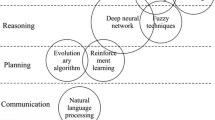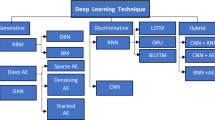Abstract
Context-aware recommender systems (CARS) exploit multiple contexts to improve user experience in embracing new information and services. Tensor factorization (TF), a type of latent factor model, has achieved remarkable performance in CARS. TF learns latent representations of contexts by decomposing an observed rating tensor and combines the latent representations as a vector form to represent contextual influence on users and items. However, due to the limitation of the contextual expression power, they have difficulties in effectively capturing complex correlations among multiple contexts, and also the meaning of each context is diluted. To address the issue, we propose a reliable TF-based recommender system based on a proposed context tensor (CT-CARS), which incorporates a variety of correlations among contexts. CT-CARS contains a novel recommendation rating function and a learning algorithm. Specifically, the proposed context tensor elaborately captures the influences of both individual contexts and context combinations. Moreover, we introduce a novel parameter initialization based on past-learned results to improve the reliability of recommendations. The overall time complexity of our parameter learning algorithm grows linearly as dataset size increases. Experiments on six real-world datasets including two large-scaled datasets show that CT-CARS outperforms the existing state-of-the-art models in terms of both accuracy and reliability.










Similar content being viewed by others
References
Banerjee, J., Raravi, G., Gupta, M., Ernala, S.K., Kunde, S., Dasgupta, K. (2016). CAPReS: context aware persona based recommendation for shoppers. In Proceedings of the thirtieth AAAI conference on artificial intelligence, AAAI’16 (pp. 680–686).
Bennett, J., & Lanning, S. (2007). The Netflix prize. In Proceedings of the KDD cup and workshop.
Chen, C., Zheng, X., Wang, Y., Hong, F., Chen, D. (2016). Capturing semantic correlation for item recommendation in tagging systems. In Proceedings of the thirtieth AAAI conference on artificial intelligence, AAAI’16 (pp. 108–114).
Chen, Z., Jiang, Y., Zhao, Y. (2010). A collaborative filtering recommendation algorithm based on user interest change and trust Evaluation. Journal of Digital Content Technology and its Applications, 4(9), 106–113.
Christensen, I., Schiaffino, S., Armentano, M. (2016). Social group recommendation in the tourism domain. Journal of Intelligent Information Systems, 47 (2), 209–231.
Deshpande, M., & Karypis, G. (2004). Item-based top-n recommendation algorithms. ACM Transactions on Information Systems, 22(1), 143–177.
Drumond, L., Rendle, S., Schmidt-Thieme, L. (2012). Predicting RDF triples in incomplete knowledge bases with tensor factorization. In Proceedings of the 27th annual ACM symposium on applied computing, SAC’12 (pp. 326–331).
Harper, F.M., & Konstan, J.A. (2015). The MovieLens datasets: history and context. ACM Transactions on Interactive Intelligent Systems, 5(4), 19.
Jamali, M., & Lakshmanan, L. (2013). Heteromf: recommendation in heterogeneous information networks using context dependent factor models. In Proceedings of the 22nd international conference on World Wide Web, WWW’13 (pp. 643–654).
Karatzoglou, A., Amatriain, X., Baltrunas, L., Oliver, N. (2010). Multiverse recommendation: N-dimensional tensor factorization for context-aware collaborative filtering. In Proceedings of the fourth ACM conference on recommender systems, RecSys’10 (pp. 79–86).
Koren, Y., Bell, R., Volinsky, C. (2009). Matrix factorization techniques for recommender systems. Computer, 42(8), 30–37.
Liu, X., & Wu, W. (2015). Learning context-aware latent representations for context-aware collaborative filtering. In Proceedings of the 38th international ACM SIGIR conference on research and development in information retrieval (pp. 887–890).
Liu, Q., Wu, S., Wang, L. (2015a). COT: contextual operating tensor for context-aware recommender systems. In Proceedings of the twenty-ninth AAAI conference on artificial intelligence, AAAI’15 (pp. 203–209).
Liu, Q., Wu, S., Wang, L. (2015b). Collaborative prediction for multi-entity interaction with hierarchical representation. In Proceedings of the 24th ACM international on conference on information and knowledge management, CIKM’15 (pp. 613–622).
Liu, L., Tan, P., Liu, X. (2015c). Mf-tree: matrix factorization tree for large multi-class learning. In Proceedings of the 24th ACM international on conference on information and knowledge management, CIKM’15 (pp. 881–890).
Ma, H., Yang, H., Lyu, M.R., King, I. (2008). Sorec: social recommendation using probabilistic matrix factorization. In Proceedings of the 24th ACM international on conference on information and knowledge management, CIKM’08 (pp. 931–940).
Man, T., Shen, H., Huang, J., Cheng, X. (2015). Context-adaptive matrix factorization for multi-context recommendation. In Proceedings of the 24th ACM international on conference on information and knowledge management, CIKM’15 (pp. 901–910).
Mikolov, T., Chen, K., Corrado, G., Dean, J. (2013). Efficient estimation of word representations in vector space. arXiv:1301.3781.
Nguyen, T.V., Karatzoglou, A., Baltrunas, L. (2014). Gaussian process factorization machines for context-aware recommendations. In Proceedings of the 37th international ACM SIGIR conference on Research and development in information retrieval (pp. 63–72).
Nickel, M., Tresp, V., Kriegel, H.P. (2011). A three-way model for collective learning on multi-relational data. In Proceedings of the 28th international conference on machine learning, ICML’11 (pp. 809–816).
Nickel, M., Tresp, V., Kriegel, H.P. (2012). Factorizing YAGO: scalable machine learning for linked data. In Proceedings of the 21st international conference on World Wide Web, WWW’12 (pp. 271–280).
Niederee, C., Kanhabua, N., Gallo, F., Logie, R.H. (2015). Forgetful digital memory: Towards brain-inspired long-term data and information management. ACM SIGMOD Record, 44(2), 41–46.
Ono, C., Takishima, Y., Motomura, Y., Asoh, H. (2009). Context-aware preference model based on a study of difference between real and supposed situation data. In International Conference on User Modeling, Adaptation, and Personalization, UMAP’09 (pp. 102–113).
Pennock, D.M., Horvitz, E., Lawrence, S., Giles, C.L. (2000). Collaborative filtering by personality diagnosis: a hybrid memory-and model-based approach. In Proceedings of the sixteenth conference on uncertainty in artificial intelligence, UAI’00 (pp. 473–480).
Ramirez-Garcia, X., & García-Valdez, M. (2014). Post-filtering for a restaurant context-aware recommender system. In Recent advances on hybrid approaches for designing intelligent systems (pp. 695–707).
Rendle, S. (2012). Factorization machines with libFM. ACM Transactions on Intelligent Systems and Technology, 3(3), 57.
Rendle, S., Gantner, Z., Freudenthaler, C., Schmidt-Thieme, L. (2011). Fast context-aware recommendations with factorization machines. In Proceedings of the 34th international ACM SIGIR conference on Research and development in information retrieval (pp. 635–644).
Salakhutdinov, R., & Mnih, A. (2008). Bayesian probabilistic matrix factorization using markov chain monte carlo. In Proceedings of the 25th international conference on Machine learning, ICML’08 (pp. 880–887).
Shi, Y., Karatzoglou, A., Baltrunas, L., Larson, M., Hanjalic, A. (2014). Cars2: learning context-aware representations for context-aware recommendations. In Proceedings of the 23rd ACM international conference on conference on information and knowledge management, CIKM’14 (pp. 291–300).
Singh, A.P., & Gordon, G.J. (2008). Relational learning via collective matrix factorization. In Proceedings of the 14th ACM SIGKDD international conference on knowledge discovery and data mining, (pp. 650–658).
Tran, T.N.T., Atas, M., Felfernig, A., Stettinger, M. (2017). An overview of recommender systems in the healthy food domain. Journal of Intelligent Information Systems, 50(3), 501–526.
Xiong, L., Chen, X., Huang, T.K., Schneider, J.G., Carbonell, J.G. (2010). Temporal collaborative filtering with bayesian probabilistic tensor factorization. In Proceedings of the 2010 SIAM international conference on data mining (pp. 211–222).
Zhang, Z., Jin, X., Li, L., Ding, G., Yang, Q. (2016). Multi-domain active learning for recommendation. In Proceedings of the thirtieth AAAI conference on artificial intelligence, AAAI’16 (pp. 2358–2364).
Zheng, Y., & Xie, X. (2011). Learning travel recommendations from user-generated GPS traces. ACM Transactions on Intelligent Systems and Technology, 2(1), 2.
Zheng, Y., Burke, R., Mobasher, B. (2012a). Optimal feature selection for context-aware recommendation using differential relaxation. In Proceedings of the sixth ACM conference on Recommender systems, RecSys’12 (p. 12).
Zheng, Y., Burke, R., Mobasher, B. (2012b). Differential context relaxation for context-aware travel recommendation. In International Conference on Electronic Commerce and Web Technologies (pp. 88–99).
Zheng, Y., Burke, R., Mobasher, B. (2013). Recommendation with differential context weighting. In International conference on user modeling, adaptation, and personalization, UMAP’13 (pp. 152–164).
Zheng, Y., Mobasher, B., Burke, R. (2014). Deviation-based contextual SLIM recommender. In Proceedings of the 23rd ACM international conference on conference on information and knowledge management, CIKM’14 (pp. 271–280).
Zheng, Y., Mobasher, B., Burke, R. (2015a). Integrating context similarity with sparse linear recommendation model. In International conference on user modeling, adaptation, and personalization, UMAP’15 (pp. 370–376).
Zheng, Y., Mobasher, B., Burke, R. (2015b). Carskit: a java-based context-aware recommendation engine. In Data mining workshop, ICDMW’15 (pp. 1668–1671).
Acknowledgments
This work was supported by the National Research Foundation of Korea (NRF) grant funded by the Korea government (MSIP; Ministry of Science, ICT & Future Planning) (NRF-2016R1A2B4015873).
Author information
Authors and Affiliations
Corresponding author
Rights and permissions
About this article
Cite this article
Oh, B., Shin, S., Eom, S. et al. Reliable TF-based recommender system for capturing complex correlations among contexts. J Intell Inf Syst 52, 337–365 (2019). https://doi.org/10.1007/s10844-018-0514-7
Received:
Revised:
Accepted:
Published:
Issue Date:
DOI: https://doi.org/10.1007/s10844-018-0514-7




